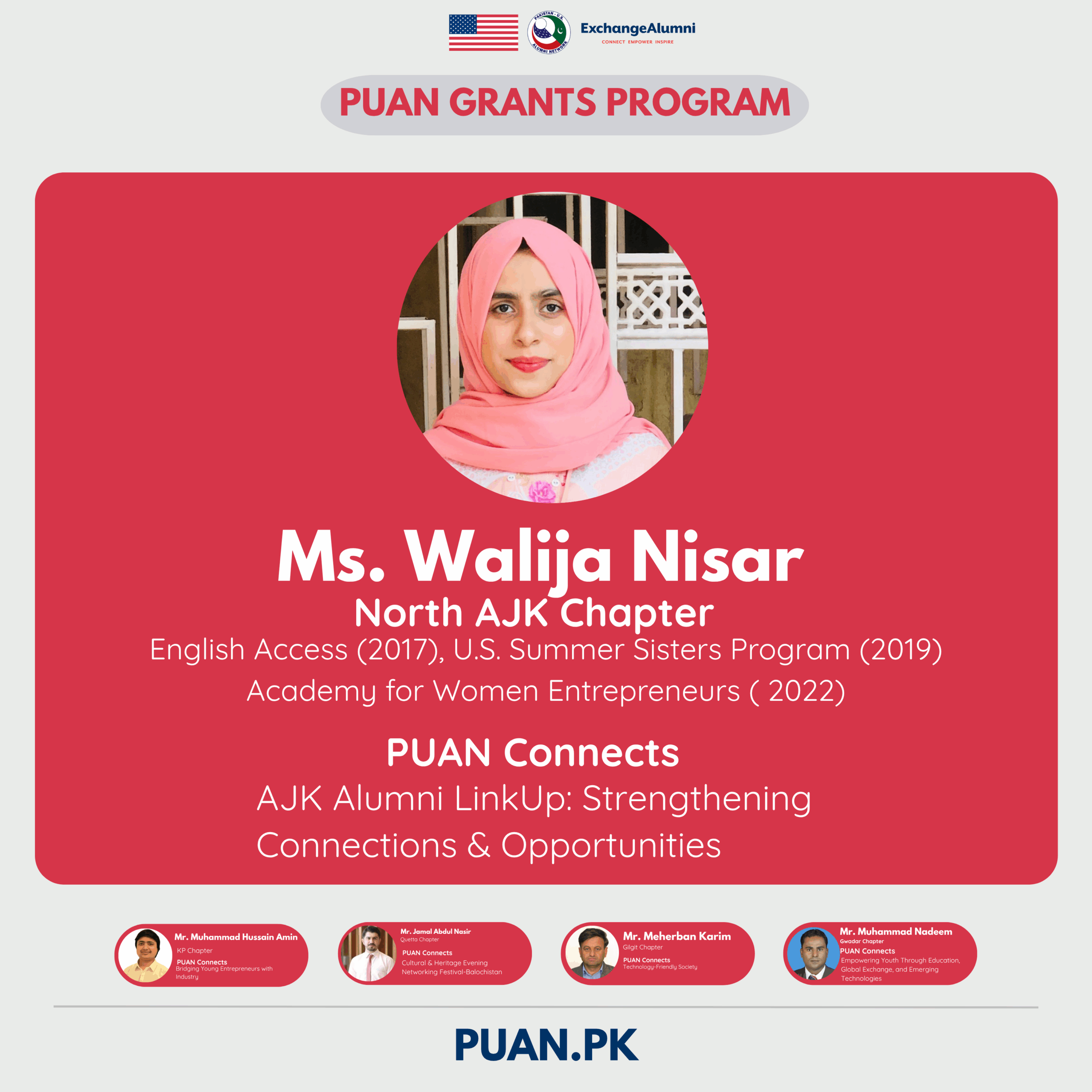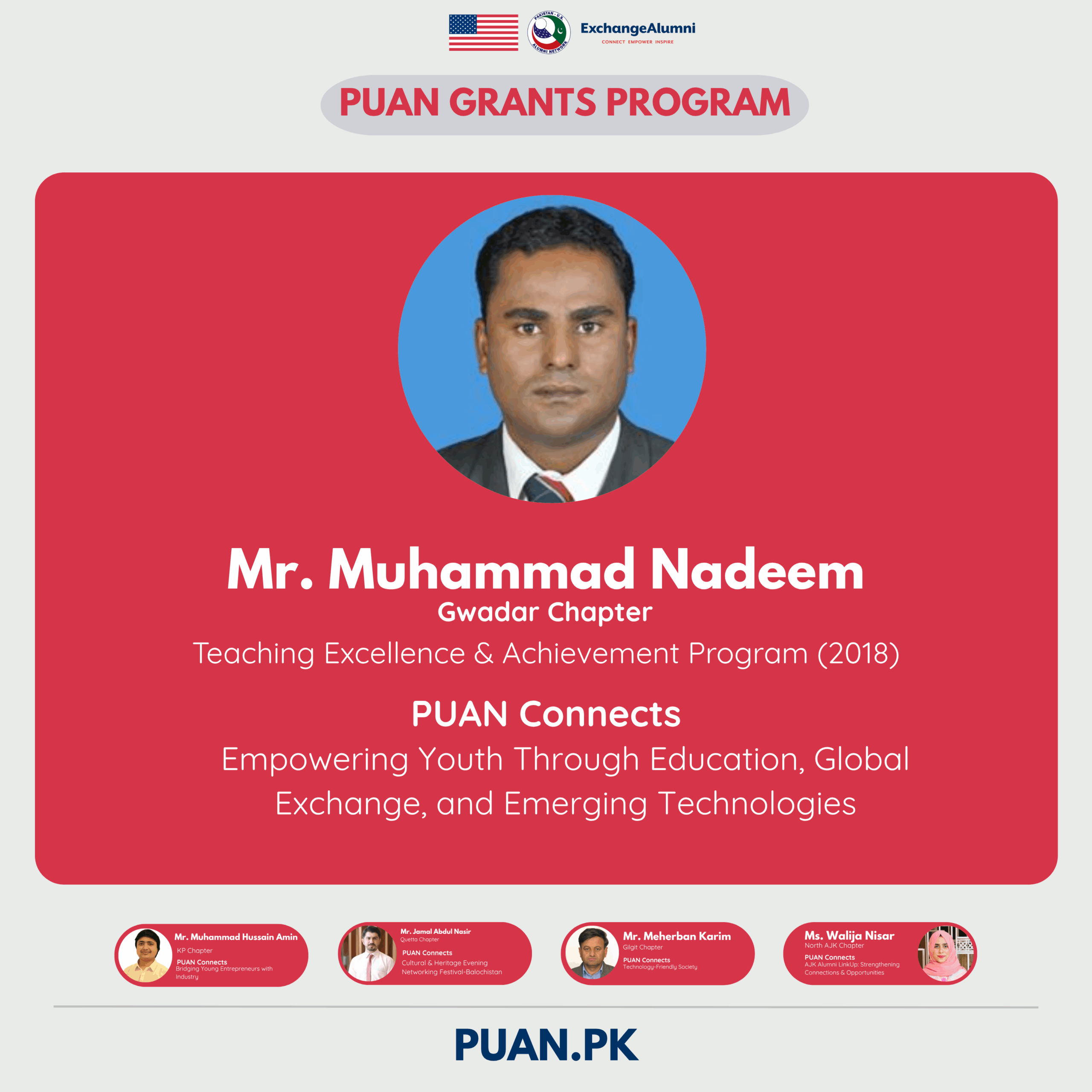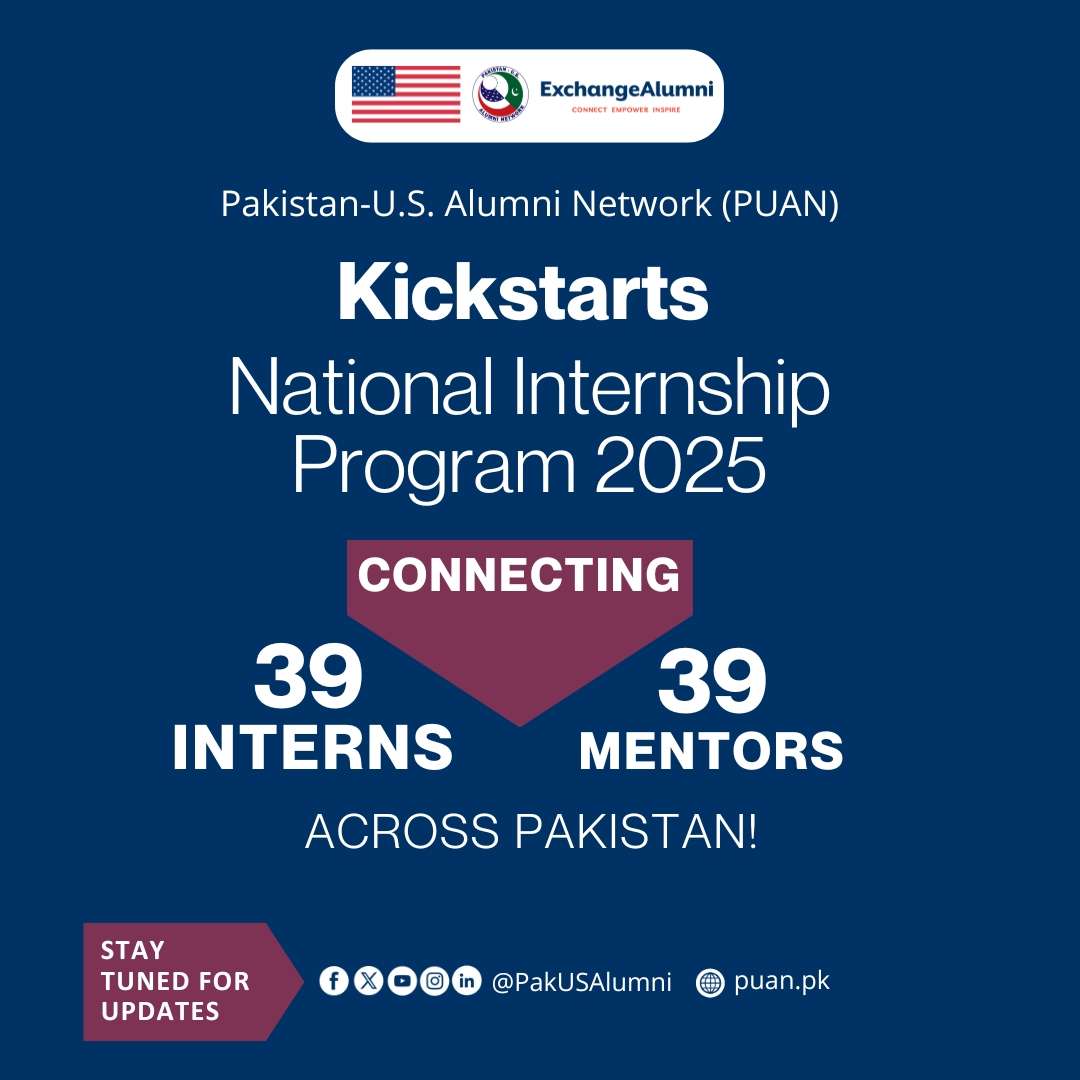By profession, Muneer Ahmed is a school teacher in Azad Jammu & Kashmir (AJK) and is also a Teaching Excellence and Achievement (TEA) program alumnus from 2017. His Annual Small Grant (ASG) project titled ‘Educational Empowerment for Pakistani Female teachers and Students’ is a collaboration with the Pakistan U.S. Alumni Network (PUAN), which aimed to teach English Language to young female faculty and alumni in his area. A series of workshops and reflective coaching was conducted to improve the participants’ language teaching skills and quality of English education, which targeted over 1,400 individuals from 10 selected middle and high schools in Muzaffarabad.
Muneer says he specifically targeted women with his project due to the significant gender inequality ratios in his area, where the literacy rate for males is 70% while that for females is only 48%. According to World Bank, teacher education is a neglected sector in Pakistan. This is especially true for female educators, as most female teachers have basic education but don’t have the necessary teacher training required to ensure efficient language development. One significant reason for this are ineffective English language teaching techniques, where female students are taught to memorize words rather than comprehend the meaning of words or text. Therefore, female teachers need professional development workshops to improve teaching methodology, by aligning it with an internationally standardized, student-centered and activity-based language teaching approach.
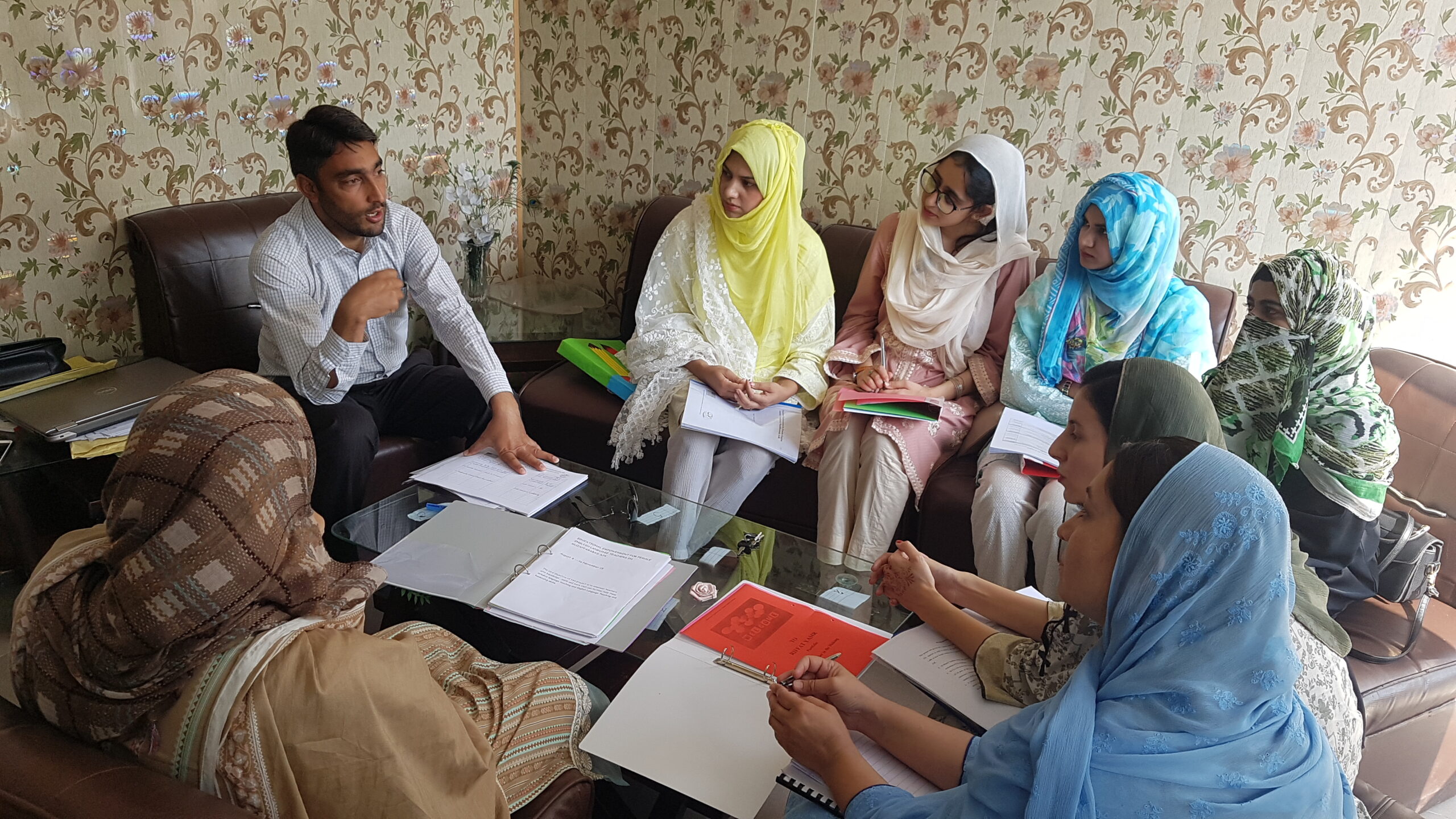
Muneer says,
“For me, the most significant outcome of this project is that teachers not only learned and practiced the new language teaching strategies in their schools with other cluster teachers but also, they are highly enthusiastic to extend and share their new knowledge and skills with other faculty members in their institutions.”
This ASG was strategized in collaboration with Dr. Carolyn Edward, Professor and TEA Pakistan coordinator (2012-2017) from the University of Northern Colorado, whereby each workshop module was critically developed for the trainees. 18 English Language Teachers (ELTs) were shortlisted to receive a 6-hours long training to be onboarded as a Mentor Teacher. Followed by 45 English as a Foreign Language (EFL) teachers who were given 6-hours training from 18 Mentor Teachers, who worked in pairs in their own schools. As teachers applied new knowledge of the English language in classrooms, constructive feedback was provided after each workshop at least once by the project leader to ensure quality learning and skills development. Towards the end of the project, a 3-hour Community Report and Sustainability Conference was provided to 10 school administrators, 10 Mentor Teachers and 2 community leaders. In this conference, a preliminary plan for the continuation and expansion of the project for the rest of the teachers in their schools was developed.
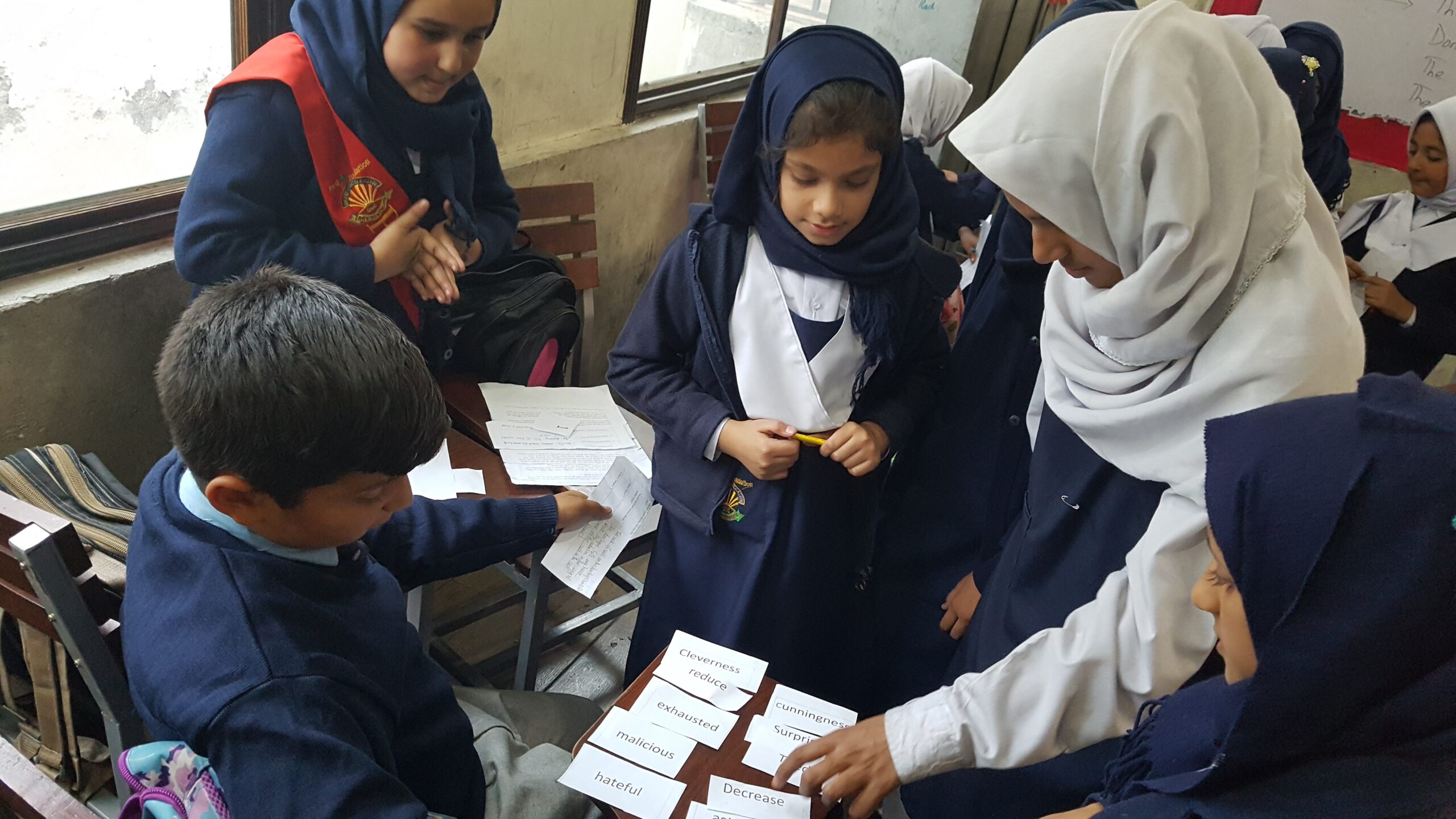
Riffat Mustafa, a participant of the workshop, says:
“This is my first ever experience of having a professional development workshop on English language teaching. For 10 years, I was teaching the way I was taught to initially. This workshop not only changed my perspective towards teaching but also transformed me into a teacher trainer in my school. I learned how effective activity-based teaching is, such as using the effective classroom management strategies, interesting listening, speaking, reading and writing activities, lesson planning and the use of different graphic organizers. Apart from this, the most significant learning for me was portfolio development, that allowed me to assess and document my learning achievements. The other teachers and I in my school are planning to extend these learnings to other teachers in my school and community.”



